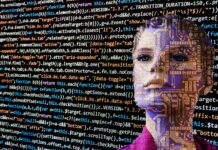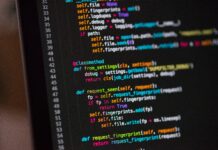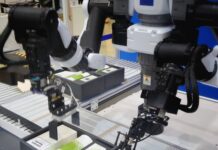Artificial Intelligence is one of the fastest-growing industries with aspects for everyone with different skills!
What is Artificial intelligence?
Artificial intelligence attempts to mimic the power of the human brain with nothing but machines.
The main goals of artificial intelligence are to:
- Speed up repetitive procedures by using robots or machines instead of humans, such as factory jobs
- Out-smart human brains through “learning” and memory
- Understands patterns and make decisions instantly and efficiently
Artificial intelligence is building machines that think and reason rather than operate with pre-built routines, procedures and outcomes. Smart AI systems understand patterns and remember past events and learn from them, making each subsequent decision smarter, logical, and more organic. In other words, build robots that aren’t just “robots”. And believe it or not, AI capabilities are all over the place.
A few examples of artificial intelligence systems include speech recognition (available on many cell phones and smart home devices), email spam blockers, plagiarism checkers, language translation services (like Google Translate) and the auto-pilot system on aeroplanes.
There is a wide range of types within the AI industry.
What are the different types of AI?
At a very high-level artificial intelligence can be split into two broad types: narrow AI and general AI.
Narrow AI is what we see all around us in computers today: intelligent systems that have been taught or learned how to carry out specific tasks without being explicitly programmed how to do so.
General AI is the concept of a machine with general intelligence that mimics human intelligence and behaviours, with the ability to learn and apply its knowledge to solve any problem.
Machine intelligence is evident in the speech and language recognition of the Siri virtual assistant on the Apple iPhone, in the vision-recognition systems on self-driving cars, in the recommendation engines that suggest products you might like based on what you bought in the past.
Why go into AI?
The understanding of artificial intelligence opens lots of opportunities. It’s enough to master the basics of this technology to understand how simple tools work. As you learn more about AI, you get a chance to become a developer who will create advanced AI applications. Studying AI is necessary for a career in software engineering, in case you want to work with human-machine interfaces, neural networks, and quantum artificial intelligence. Those who want to start learning AI have plenty of options available. For example, the internet allows everyone to enrol in online courses.
Tech Skills Needed
Algorithm developers take AI research and use it into repeatable processes through mathematical formulas which can be implemented using hardware and software.
Software developers and computer scientists use those algorithms to write sophisticated pieces of software that: analyses data, interpret and make decisions.
Most careers in artificial intelligence require coursework and experience in a variety of math and science-related topics like:
- Math: statistics, probability, predictions, calculus, algebra, and logic
- Science: physics, mechanics, cognitive learning theory, language processing
- Computer science: data structures, programming, logic and efficiency
Soft Skills Needed
- Highly critical thinkers; they take nothing at face value and are naturally curious. They believe in trial and error and must test and experiment before making a concrete decision.
- AI is all about pushing the boundaries; understanding the capabilities of hardware and software to their max, always looking for more. More ways to improve existing systems. More ideas for inventing new ways to live.
- Live naturally curious lives. Always wanting to know more, artificial intelligence pros want to know how things work. They don’t just look; they observe. They don’t hear; they listen.
- Don’t get easily overwhelmed; they understand that artificial intelligence is highly technical, but also realize that venturing into uncharted waters is both difficult and mysterious.
- A love for math and science; AI is highly technical. It’s a naturally good fit for those who are gifted and interested in hard sciences and mathematics.
How can someone get into AI?
There’s no surprise if you experience some difficulties studying artificial intelligence. It’s also important to understand what to focus on and what to do first.
1. Pick a subject you are interested in
First, choose a topic that is interesting to you. It will help you stay motivated and involved in the learning process. Focus on a specific problem and look for a solution, instead of just passively reading about everything you can find on the internet.
2. Find a quick solution
The point is to find any basic solution that covers the problem as much as possible. By having an algorithm that will process data into a form makes it understandable for machine learning, train a simple model, give a result, and evaluate its performance.
3. Improve your simple solution
Once you have a simple basis, it’s time for creativity. Try to improve all the components and evaluate the changes to determine whether these improvements are worth your time and effort.
4. Share your solution
Write up your solution and share it to get feedback. Not only will you get valuable advice from other people, but it will also be the first record in your portfolio.
5. Repeat steps 1-4 for different problems
Choose different problems and follow the same steps for each task. If you’ve started with data, choose a problem; that involves working with images or unstructured text. Developers often need to turn some abstract business objectives into situations that fit the specifics of machine learning.
6. Use machine learning professionally
You need to determine what your career goals are and to create your portfolio. If you are not ready to apply for machine learning jobs, look for more projects that will make your portfolio impressive. Join civic hackathons and look for data-related positions in community service



















